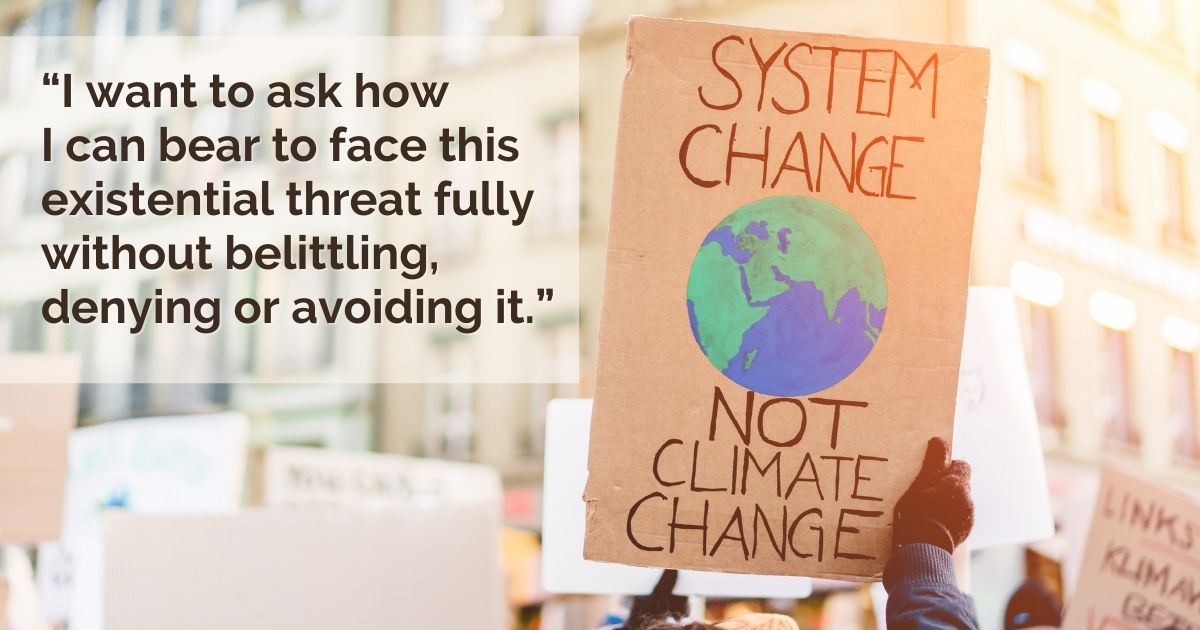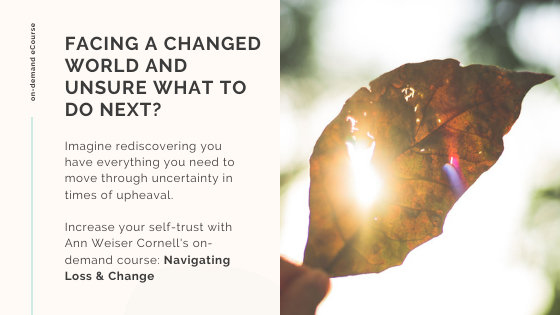How can you face painful feelings about the biggest threat to existence? Read on…
A Reader writes:
I am deeply concerned about climate catastrophe. I’ve worked on how this resonates with my past (which it does) and I’ve spent time on how I can find hope in despair.
But I feel there is more. I want to explore what it might be like to live on a planet that is dying. I want to ask how I can bear to face this existential threat fully without belittling, denying or avoiding it.
Dear Reader:
Climate catastrophe is a truly monumental crisis. I admire you for wanting to find a way to face it squarely. It’s clear (at least to me) that denial and avoidance have made things worse.
Let’s make a distinction, though, between facing feelings about what is happening now, versus preparing to face feelings that might happen in the future.
For years, I tried to prepare myself for the worst loss I could imagine: my mother’s death. I dreaded the day when I would have to face her loss for real. Then, when it actually happened, my reaction was completely different from what I’d anticipated. I didn’t feel I’d really lost her. I could still feel her with me. (20 years later, I still do.)
What I learned then, and what I know now, is that we don’t know how we are going to feel in the future. The body-life process is designed for us to be able to know how we are feeling now. Not someday.
Yes, we can have feelings about the future. Worry, anxiety, dread. But we have them now. We don’t actually know how we will feel in the future.
You asked, “How can I bear to face this existential threat?” That’s a key question. And yes, the threat is here now, and so are the feelings of shock, helplessness, even despair.
Those feelings need your company, your compassionate presence. How can you be bigger than existential despair? By realizing that being present is not the same as having an answer.
“I know, I get you are feeling that way, and I am here with you.” There’s no cheering up involved. No “look on the bright side.”
And that’s what makes it possible to bear it, whatever it is, however hard it is. “I hear you, and I am here with you.”
Then, if you feel the urge to escape, deny, or make light of it all, you can turn toward that as well. “Yes, and I am here with you too.”
Compassion gets easier with practice… and it can spread.
Additional Tips and Resources
The Body Sense of the World’s Suffering (Tip opens in a new browser tab)
Finding potential and possibility in times of despair. (Tip opens in a new browser tab)
An on-demand course you may find helpful:
Find Out More About the Navigating Loss & Change Course Here








